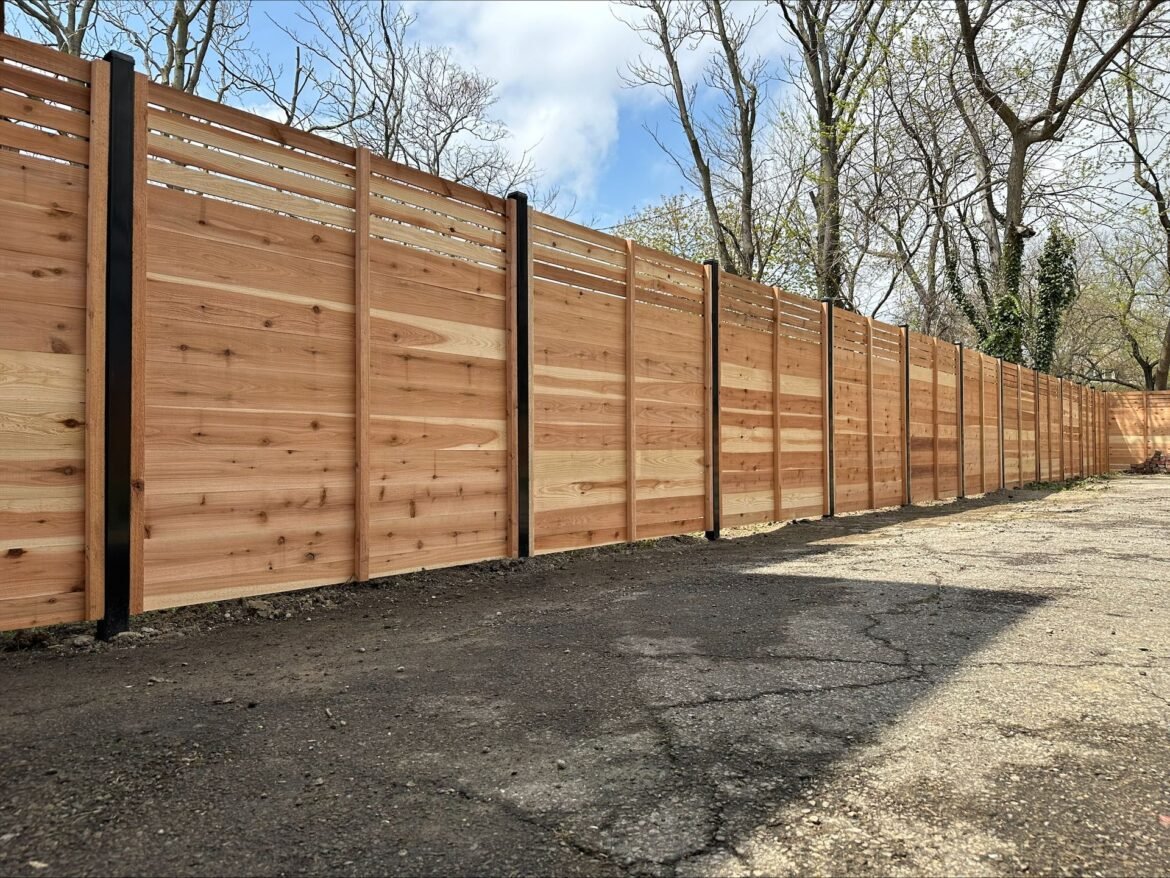Why Professional Fencing Companies Are Essential for Property Value
Property owners frequently underestimate the profound impact that professional fencing installation can have on their investment. While many view fencing as a simple boundary marker, the reality demonstrates that expertly installed fencing systems serve as critical infrastructure components that directly influence property valuation, security protocols, and aesthetic appeal.
The distinction between amateur installation attempts and professional fencing companies becomes apparent through multiple dimensions of project execution. Professional contractors bring specialized knowledge of local building codes, soil conditions, material specifications, and installation techniques that ensure long-term durability and compliance. This expertise translates directly into enhanced property value and reduced maintenance costs over the fence’s lifespan.
Contemporary real estate markets increasingly recognize quality fencing as a premium feature rather than a basic necessity. Properties featuring professionally installed fencing systems consistently command higher market prices and demonstrate faster sale velocities compared to those with substandard or absent perimeter solutions.
The Economic Impact of Professional Fencing Installation
Professional fencing companies deliver measurable returns on investment through multiple value-creation mechanisms. Quality installation practices ensure structural integrity that withstands environmental stresses, reducing replacement costs and extending service life significantly beyond amateur installations.
Insurance considerations further emphasize the value of professional installation. Many insurance providers offer premium reductions for properties featuring professionally installed security fencing, recognizing the reduced liability exposure associated with proper perimeter control. These savings accumulate substantially over time, often offsetting initial installation investments within several years.
Property tax assessments frequently reflect the enhanced value that professional fencing provides. Well-designed and expertly installed fencing systems contribute to improved property classifications, potentially increasing assessed values while simultaneously providing functional benefits that justify the enhanced valuation.
Material Selection and Professional Expertise
The complexity of modern fencing materials requires professional knowledge to optimize performance characteristics. Professional fencing companies maintain relationships with premium material suppliers, ensuring access to superior products that may not be available through retail channels.
Wood fencing requires an understanding of species characteristics, treatment options, and environmental compatibility factors. Professional installers possess the expertise to recommend appropriate wood types based on local climate conditions, soil chemistry, and aesthetic preferences while ensuring proper treatment applications that maximize longevity.
Metal fencing systems demand specialized knowledge of corrosion resistance, structural engineering principles, and connection methodologies. Professional contractors understand the nuances of aluminum, steel, and wrought iron applications, selecting appropriate materials and installation techniques that optimize both performance and appearance.
Vinyl and composite materials present unique installation challenges that require professional equipment and techniques. These materials offer excellent longevity characteristics when properly installed, but can fail prematurely when handled incorrectly during installation.
Installation Precision and Long-Term Performance
Professional fencing companies employ precision measurement techniques and specialized equipment that ensure proper alignment, spacing, and structural integrity. Post-setting procedures, in particular, require professional knowledge of soil conditions, drainage considerations, and concrete mixing specifications to achieve optimal stability.
Gate installation represents a particularly complex aspect of fencing projects that benefits significantly from professional expertise. Proper gate installation requires an understanding of hinge specifications, latch mechanisms, weight distribution principles, and adjustment procedures that ensure smooth operation over extended periods.
Fortitude fencing projects demand exceptional attention to structural engineering principles, as these installations must withstand significant environmental stresses while maintaining aesthetic appeal. Professional contractors possess the technical knowledge and specialized equipment necessary to execute these demanding installations successfully.
Regulatory Compliance and Permit Management
Professional fencing companies maintain current knowledge of local building codes, zoning restrictions, and permit requirements that govern fencing installations. This expertise prevents costly code violations and ensures projects meet all regulatory standards from initial planning through final inspection.
Property line surveys and easement considerations require professional navigation to avoid boundary disputes and legal complications. Experienced contractors coordinate with surveyors and municipal authorities to ensure accurate placement that respects property rights and utility access requirements.
Homeowner association requirements often impose specific design standards and approval processes that professional contractors understand and can navigate efficiently. This knowledge prevents project delays and ensures compliance with community standards that protect property values.
Quality Assurance and Warranty Protection
Professional fencing companies provide comprehensive warranty coverage that protects property owners from material defects and installation errors. These warranties typically extend beyond manufacturer material warranties to include workmanship guarantees that provide long-term peace of mind.
Post-installation maintenance requirements vary significantly based on material selection and installation quality. Professional contractors provide detailed maintenance schedules and procedures that maximize fence longevity while identifying potential issues before they become costly problems.
Professional installation documentation provides valuable records for insurance claims, warranty service, and future maintenance planning. This documentation proves particularly valuable for property transfers and insurance adjustments.
Selecting Premium Fencing Partners
The selection process for professional fencing companies requires careful evaluation of credentials, experience, and service capabilities. Licensed contractors demonstrate commitment to professional standards and regulatory compliance that protects property owners from liability exposure.
Portfolio evaluation reveals the breadth and quality of previous installations while providing insight into design capabilities and material expertise. Established contractors maintain extensive portfolios that demonstrate consistent quality across diverse project types and challenging installation conditions.
Reference verification provides direct feedback from previous clients regarding project execution, timeline adherence, and post-installation service quality. Professional contractors readily provide references and encourage direct communication with satisfied customers.
Maximizing Your Fencing Investment
Professional Fencing Companies represent essential partners in maximizing property value, security, and aesthetic appeal through expert installation practices and superior material selection. The investment in professional services provides measurable returns through enhanced property values, reduced maintenance costs, and superior long-term performance that amateur installations cannot match.
The complexity of contemporary fencing materials and installation requirements demands professional expertise to achieve optimal results. Property owners who prioritize professional installation services position themselves to realize maximum value from their fencing investments while avoiding the costly mistakes associated with inadequate installation practices.


